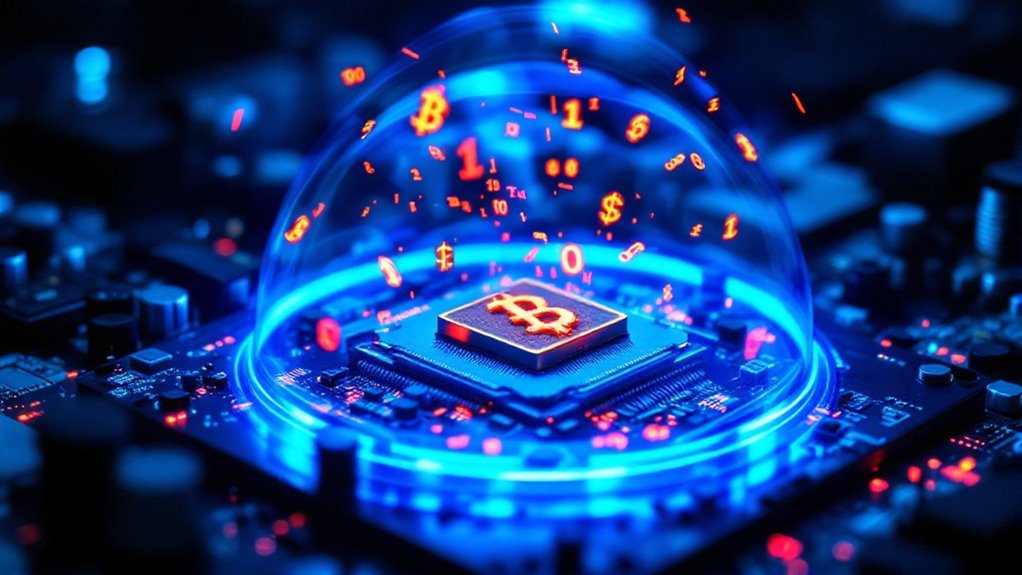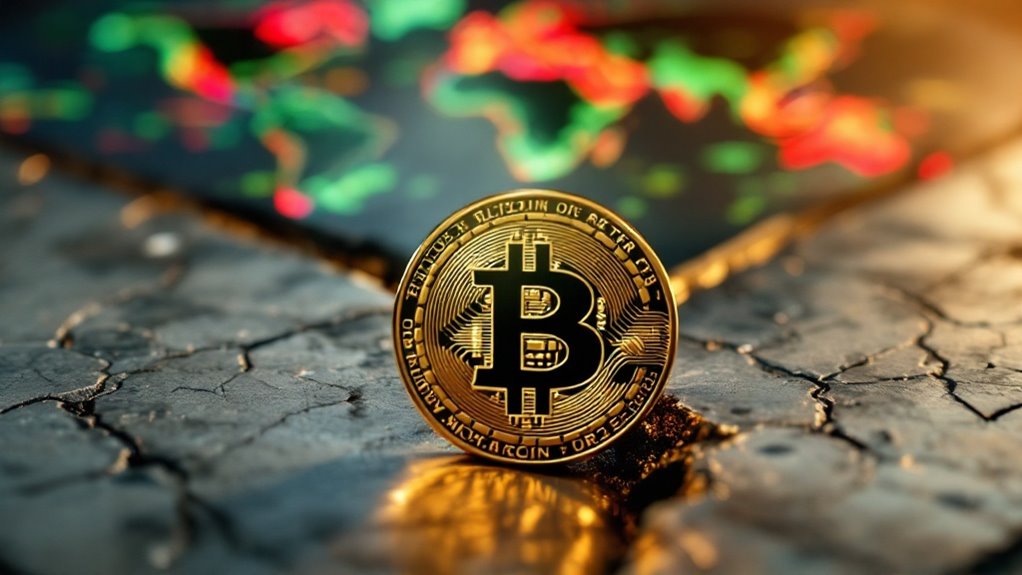Cryptocurrency operates as digital money secured by complex mathematical puzzles and verified across a vast network of computers. Instead of traditional banks, a decentralized blockchain tracks every transaction with unwavering precision, while specialized digital wallets safeguard access to these virtual assets. Miners compete to solve cryptographic challenges, earning newly minted coins as rewards. This invisible financial ecosystem, born from technological evolution, challenges our fundamental understanding of value and trust, inviting exploration into a revolutionary monetary frontier.

Cryptocurrency revolutionizes money in ways that would make ancient merchants scratch their heads in bewilderment. Gone are the days of heavy coin purses and paper bills – today's wealth flows through an invisible network of computers, secured by mathematical puzzles that would give even Einstein pause.
At the heart of this digital revolution lies blockchain technology, a decentralized ledger that records every transaction with the precision of a master accountant and the transparency of a glass window. This revolutionary system was first introduced by Satoshi Nakamoto in 2008, setting the foundation for modern digital currencies. The system operates completely without central authority, eliminating the need for traditional banks or government oversight. The cryptographic techniques ensure that once transactions are recorded, they cannot be altered or tampered with.
Blockchain serves as humanity's infinite ledger, tracking digital wealth with unwavering accuracy and crystal-clear visibility across the globe.
Like a digital safety deposit box, cryptocurrency wallets guard the keys to this new form of wealth. These wallets come in various forms, from apps that light up our smartphone screens to specialized hardware devices that look like futuristic USB drives. Some cautious investors even print their keys on paper, treating them with the same reverence as ancient scrolls.
The process of creating new cryptocurrencies might seem like modern-day alchemy, but it's pure mathematics and computing power. Miners and validators compete in a high-stakes game of computational chess, solving complex puzzles or staking their existing coins to earn the right to verify transactions. Their reward? Brand new digital coins, minted not by government decree but by mathematical consensus.
When someone sends cryptocurrency, the transaction ripples across a vast network of computers like whispers in a crowded room. Each computer checks the math, verifies the sender's digital signature, and guarantees everything follows the rules. Once confirmed, the transaction becomes permanent – etched into the blockchain like a fossil in digital amber.
The ecosystem supporting cryptocurrencies has evolved into a sophisticated marketplace where various digital assets trade hands. Bitcoin stands as the elder statesman, while younger cryptocurrencies offer specialized features like smart contracts or stable values tied to traditional currencies.
Trading platforms range from sleek, centralized exchanges that feel like modern banks to decentralized marketplaces where code, not corporations, facilitates trades. This new financial frontier, while sometimes volatile and unpredictable, continues to challenge our traditional notions of money, value, and trust.
Frequently Asked Questions
What Happens to My Cryptocurrency if I Lose My Digital Wallet Password?
If someone loses their digital wallet password, their cryptocurrency becomes inaccessible. They can attempt recovery using seed phrases, wallet features, or professional services, but without proper backup measures, funds may be permanently lost.
Is Cryptocurrency Mining Bad for the Environment?
Cryptocurrency mining has significant environmental impacts, consuming massive amounts of electricity largely from fossil fuels, generating substantial CO2 emissions, producing electronic waste, and potentially affecting water resources through intensive cooling requirements.
Can Governments Ban or Regulate Cryptocurrencies in Their Countries?
Governments can implement regulations and partial bans on cryptocurrencies, but complete prohibition proves challenging due to their decentralized nature. Many nations opt for regulatory frameworks instead of outright bans to maintain oversight.
What Determines the Daily Price Fluctuations of Cryptocurrencies?
Cryptocurrency prices fluctuate daily based on supply and demand dynamics, market sentiment, media coverage, technical trading patterns, and macroeconomic factors. Large investors, regulatory news, and global economic conditions greatly influence these movements.
How Do I Protect My Cryptocurrency Investments From Hackers and Scams?
Protecting cryptocurrency requires using secure cold wallets, enabling two-factor authentication, practicing safe online behavior, and implementing additional security measures like diversification and account alerts. Regular software updates enhance overall protection.









